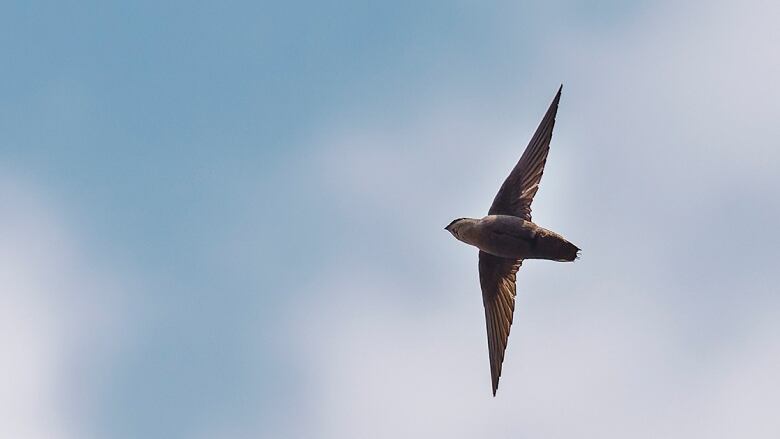Emily Chung
Science, Climate, Environment Reporter
Emily Chung covers science, the environment and climate for CBC News. She has previously worked as a digital journalist for CBC Ottawa and as an occasional producer at CBC's Quirks & Quarks. She has a PhD in chemistry from the University of British Columbia. In 2019, she was part of the team that won a Digital Publishing Award for best newsletter for "What on Earth." You can email story ideas to emily.chung@cbc.ca.
Latest from Emily Chung

Chimney swifts' housing crisis creates hurdle for affordable housing providers
The chimney swift is a bird threatened with extinction that nests in urban chimneys. Thanks to laws that protect it, some affordable housing providers have to come up with creative bird housing solutions before going ahead with human housing projects.
Science |

Automakers want Canada to scrap its EV sales mandate. What would that do to emissions?
Auto industry representatives say they want Canada to scrap a mandate requiring a certain percentage of vehicles sold to be electric. What would that do to emissions? Here's a closer look.
Science |
Scientists say they've proven these Canadian rocks are the oldest on Earth
In 2008, Canadian researchers said they'd found the world's oldest rocks in northern Quebec. The find was controversial. But after more than a decade of hard work, they believe they've really proven it and are giving scientists a new glimpse into Earth's early history.
Science |

How these condo dwellers got EV charging in their buildings
Being able to charge at home is one of the huge benefits of EVs. But many condo and apartment dwellers don't have access to charging, and getting it is often hard. Here's how some condo dwellers in different cities did it — and some tips for getting EV charging into your building.
Science |
Wheat and corn crops in Canada's Prairies, U.S. Midwest could see biggest losses due to climate change
Think food prices are high now? Climate change could significantly cut production of six staple food crops around the world — including wheat production in Canada, a new study finds. Here's what difference farmers' adapation could make — and what the options are for Canada.
Science |

Who owns an EV in Canada? 3 provinces dominate EV registrations
Canadians who drive electric vehicles tend to come from certain regions and demographics. Here's a look at what those are, how that's changing and why some groups of Canadians making the switch to EVs, while others are still buying gas.
Science |

Canadian wildfire smoke blows over to Europe
Plumes of smoke from the wildfires burning in Canada have been blown across the Atlantic Ocean to Europe, with more expected to arrive this week, satellite data shows.
Science |

The U.S. plans to cut Energy Star. Could that raise costs for Canadians?
If the Energy Star program disappears in the U.S., it could affect the labels Canadians rely on to know what products will help them save on energy bills. While there is a Canadian label administered by Ottawa, it's not clear how it will operate without the U.S. program.
Science |

How the Dutch built the world's largest freshwater wind farm
Ontario has a ban on offshore wind in the Great Lakes, despite its potential to generate clean energy. Meanwhile, the Netherlands built the largest freshwater wind farm in the world despite local opposition. Here's a closer look at how they did it, and the impact it's had on local communities.
Science |

Who needs faster EV charging at home? Drivers share their experiences
Many EV owners can charge their car at home with a power outlet they already have, cutting costs. The downside? It's slow and doesn't meet everyone's needs. But who needs faster, more expensive Level 2 charging? We heard from Canadian EV drivers who shared their experiences.
Science |